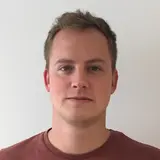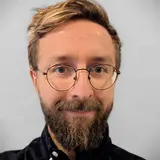Medical Image Computing
- Imaging and Radiooncology

Prof. Dr. Klaus Maier-Hein
Head of Division
The Division of Medical Image Computing (MIC) pioneers research in machine learning and information processing, with the particular aim of improving cancer patient care by systematic image data analytics. We structure and quantify imaging information from multiple time-points and imaging technologies, e.g. magnetic resonance imaging or computer tomography, and link it with clinical and biological parameters.

Our Research
As an initiator and co-coordinator of the Helmholtz Imaging Platform (HIP) we pursue cutting-edge developments at the core of computer science, with applications in but also beyond medicine. We are particularly interested in techniques for semantic segmentation and object detection as well as in unsupervised learning and probabilistic modeling.
Methodologic excellence can only be achieved on the basis of a sophisticated research software system and infrastructure, for example to facilitate highly scalable data analysis in a federated setting. Our technological portfolio in this regard builds the foundation of various national and international clinical research networks, such as the National Center for Tumor Diseases (NCT), the German Cancer Consortium (DKTK) and the Cancer Core Europe (CCE). In collaboration with our clinical partners, we work on the direct translation of the latest machine learning advances into relevant clinical applications.
Our vision is to advance the quality of healthcare through methodological advances in artificial intelligence research and their large-scale clinical implementation. We therefore have a particular interest in techniques that improve the applicability of data science in clinical settings, e.g. by providing more interpretable decision-making, by explicitly dealing with data uncertainty, by increasing the generalizability of algorithms or by learning more powerful representations. We further study image computing concepts that combine mathematical modelling approaches with current machine learning techniques. We are dedicated to open science and committed to maintaining several open source projects in order to share our advances with developers and the scientific community and to promote leveraging synergies.
Visualized Research Focus Areas of the Division
The illustration highlights the thematic breadth of our research, which operates at the intersection of method development, clinical applications, and platform solutions. A central focus lies in the analysis of imaging parameters, such as those derived from magnetic resonance imaging and computed tomography, which are combined with clinical and biological factors. Techniques such as semantic segmentation, object detection, and disease stratification play a key role in this process. Additionally, we develop advanced algorithms using unsupervised learning, representation-based methods, and active learning techniques, which model uncertainties and are robustly applicable in clinical settings.
Our work also involves the development of scalable data analyses within federated networks, for example, through our involvement in Helmholtz Imaging (HI) and other research networks. Through initiatives like the Medical Imaging Interaction Toolkit (MITK), we promote open science projects and enable collaboration within the scientific community. Our goal is to translate innovative developments in artificial intelligence directly into clinical applications, thereby sustainably improving healthcare.
News
Interested in the progress of our Division?
Team
Division Management
-

Prof. Dr. Klaus Maier-Hein
Head of Division
-

Dr. Ralf Omar Floca
-

Dr. Fabian Isensee
-

Dr. Peter Neher
-

Dr. Marco Nolden
Join Our Team
We are always looking for talented and motivated individuals to strengthen our group.
If you are interested in a postdoctoral or PhD position, please refer to the DKFZ International Postdoc Program and the DKFZ International PhD Program for current opportunities and application procedures.
If no specific opening is currently advertised, you are welcome to send your CV, a letter of motivation (including your research interests), and ideally two references in a single PDF to Klaus Maier-Hein directly.
We also offer opportunities for MSc theses as well as internships in our lab. If you are interested, please send us your CV and a motivation letter tailored to our research focus to get in touch.
Selected Publications
Isensee F, Wald T, Ulrich C, Baumgartner M, Roy S, Maier-Hein KH and Jaeger PF
Neher P, Hirjak D and Maier-Hein KH
Roy S, Koehler G, Ulrich C, Baumgartner M, Petersen J, Isensee F, Jaeger PF and Maier-Hein KH
Almeida S, Norajitra T, Lueth CT, Wald T, Weru V, Nolden M, Jaeger PF, Stackelberg O, Heußel CP, Weinheimer O, Biederer J, Kauczor HU, Maier-Hein KH
Isensee F, Jaeger PF, Kohl SAA, Petersen J and Maier-Hein KH
Kickingereder P, Isensee F, Tursunova I, Petersen J, Neuberger U, Bonekamp D, Brugnara G, Schell M, Kessler T, Foltyn M, Harting I, Sahm F, Prager M, Nowosielski M, Wick A, Nolden M, Radbruch A, Debus J, Schlemmer HP, Heiland S, Platten M, von Deimling A, van den Bent MJ, Gorlia T, Wick W, Bendszus M, Maier-Hein KH
Get in touch with us

Prof. Dr. Klaus Maier-Hein
Head of DivisionPostal address: